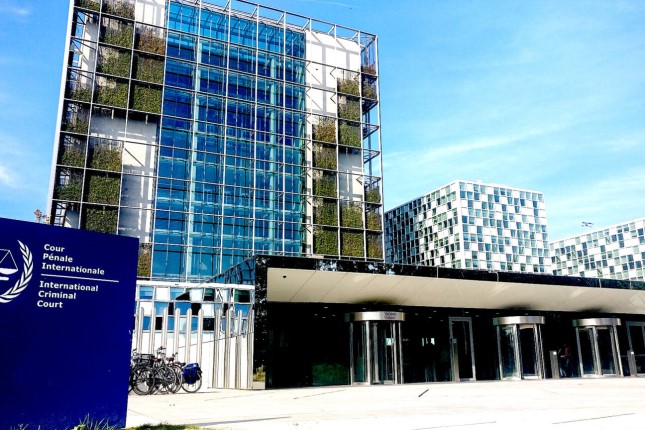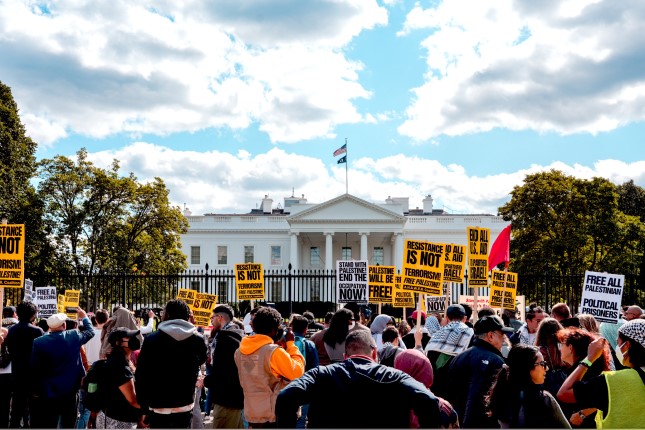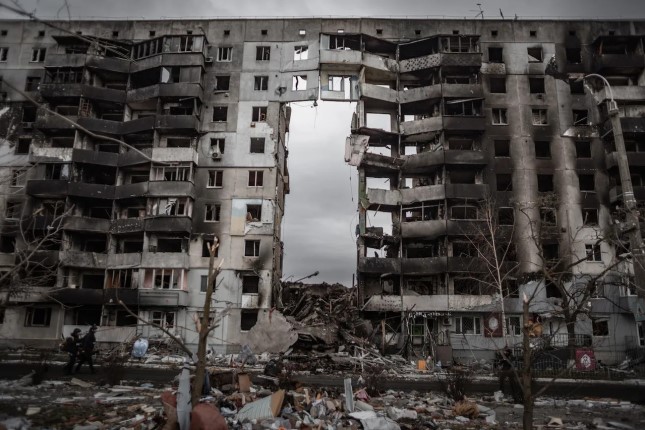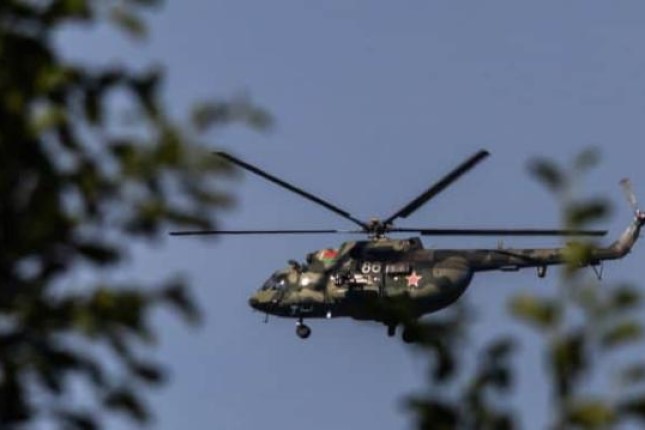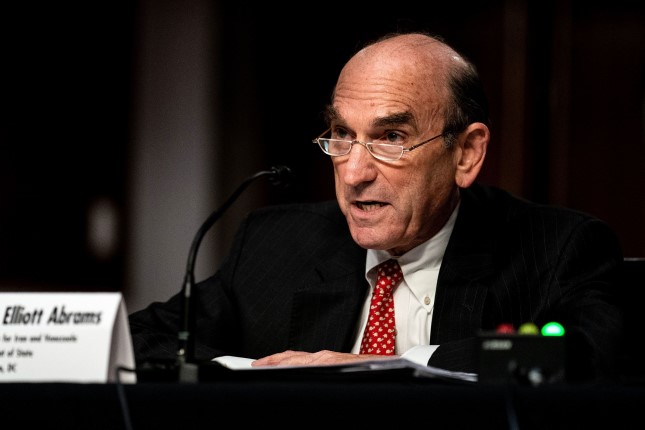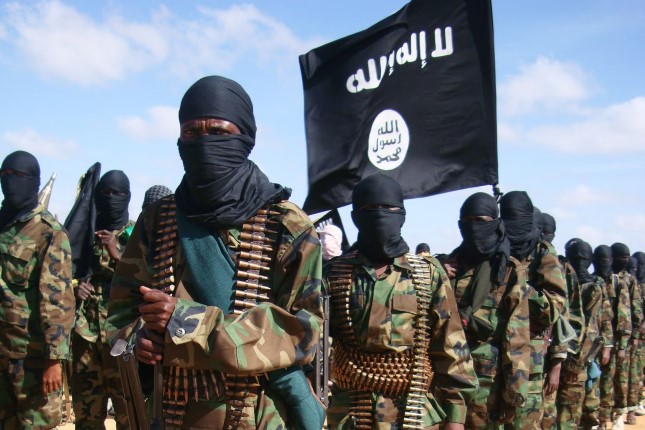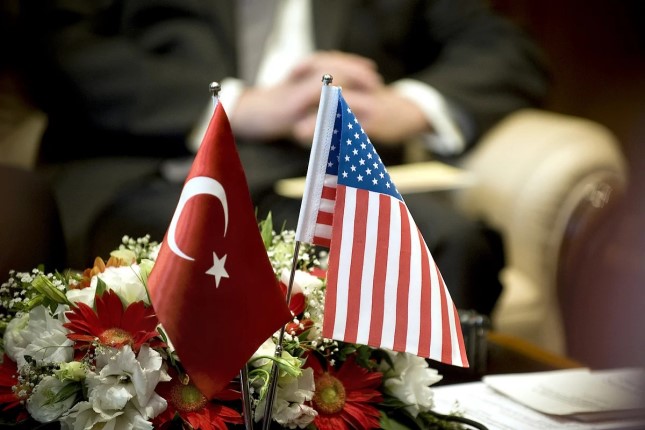Since the Oct. 7 attacks by Hamas that killed 1,200 people in Israel, the Israeli occupying forces have killed more than 17,000 Palestinians, over 7,000 of them children, and wounded more than 46,000.
Close to 1.9 million people — about 85 percent of Gaza’s population — have been forced to flee their homes and squeeze into roughly one-third of the Gaza Strip.
The vast majority of people in Gaza have been displaced and are on the verge of starvation.
On Oct. 13, in anticipation of its ground invasion into Gaza, Israel ordered 1.1 million Palestinians in northern Gaza to evacuate to the south within 24 hours. Although that was an impossible deadline to meet, half the population of Gaza was forcibly transferred in response to the evacuation order. Then, Israeli forces carpet-bombed the north, striking homes and hospitals. Much of the area was reduced to rubble.
“It is inconceivable that more than half of Gaza’s population could traverse an active war zone, without devastating humanitarian consequences, particularly while deprived of essential supplies and basic services,” said Paula Gaviria Betancur, special rapporteur on the human rights of internally displaced persons, on Oct. 13.
Israel ordered Gazans in the south to evacuate on Dec. 3. But there is nowhere for them to go. The Israeli border crossings are closed and the Rafah Crossing from Egypt is heavily restricted. Many people are sleeping in the streets and on sidewalks. “Images from Gaza on [Dec. 3] showed plumes of dark smoke rising above a rubble-covered landscape and bloodied children wailing in dust-covered hospital wards,” according to a New York Times report. “Mourners stood beside rows of bodies wrapped in white sheets.”
“Under international humanitarian law, the place where you evacuate people to must, by law, have sufficient resources for their survival — medical facilities, food and water,” said United Nations Children’s Fund spokesman James Elder in an interview with the Times. “That is absolutely not the case. They are these patches of barren land, they are streets or corners or any space in a neighborhood, half-built buildings. The common thing they have is no water, no facilities, no shelter from cold and rain, and particularly no sanitation.”
U.N. Emergency Relief Coordinator Martin Griffiths, said the Israeli military campaign has created “apocalyptic” conditions and ended meaningful humanitarian operations. “This is an apocalyptic situation now, because these are the remnants of a nation being driven into a pocket in the south,” Griffiths noted.
Crime Against Humanity, War Crime & Genocide
The Rome Statute for the International Criminal Court (ICC) lists the forcible transfer of population as a crime against humanity “when committed as part of a widespread or systematic attack directed against any civilian population, with knowledge of the attack.” Israeli forces have mounted a widespread and systematic attack against the civilians in Gaza.
Forcible transfer under the Rome Statute “means forced displacement of the persons concerned by expulsion or other coercive acts from the area in which they are lawfully present, without grounds permitted under international law.” There is no legal or moral justification for Israel to forcibly displace 85 percent of the population of Gaza.
The Rome Statute also classifies the “transfer of all or parts of the population of the occupied territory within or outside this territory” as a war crime.
Moreover, forcible transfer may constitute the crime of genocide under the Rome Statute. Consistent with the Genocide Convention, the Rome Statute classifies “Deliberately inflicting on the group conditions of life calculated to bring about its physical destruction in whole or in part” as genocide when done with genocidal intent.
Numerous statements by Israeli officials have demonstrated their intent to commit genocide by ethnically cleansing all or part of the population of Gaza. They have vowed to “eliminate everything in Gaza” and turn it into “a city of tents.”
In addition, forcible transfers “of protected persons from occupied territory to the territory of the Occupying Power or to that of any other country, occupied or not, are prohibited, regardless of their motive” by the Fourth Geneva Convention Relative to the Protection of Civilian Persons in Time of War.
The Rome Statute also considers the crime of extermination to be a crime against humanity “when committed as part of a widespread or systematic attack directed against any civilian population, with knowledge of the attack.” Extermination, according to the statute, “includes the intentional infliction of conditions of life … the deprivation of access to food and medicine, calculated to bring about the destruction of part of a population.” On Oct. 9, the Israeli government escalated its 16-year siege of Gaza to a “complete siege,” slaughtering civilians and cutting off their food, water, fuel and electricity.
Nakba 2.0
In 1948, Israel carried out the Nakba (or “catastrophe”), a violent campaign of ethnic cleansing of 750,000 Palestinians from their land in order to create the state of Israel. Mass atrocities and dozens of massacres killed roughly 15,000 Palestinians. The Nakba caused the forced displacement of 85 percent of the Palestinian population.
Israel is reprising the Nakba of 75 years ago. “We are now rolling out the Gaza Nakba,” Israeli security cabinet member and Minister of Agriculture Avi Dichter declared on Nov. 11. “Gaza Nakba 2023. That’s how it will end.”
Today’s Nakba has already surpassed the 1948 ethnic cleansing of Palestine, with 85 percent of Gazans displaced and more than 17,000 Palestinians already killed. Israel shows no sign of ending its assault on the Palestinian people and those numbers are rising every day.
ICC Chief ‘s Blatant Israel Bias

ICC Chief Prosecutor Karim Khan in Brussels with E.U. foreign ministers that included the investigation of war crimes in Ukraine, April 11, 2022. Photo: Raoul Somers / Dutch State Department / CC BY-SA 2.0 / Wikimedia Commons.
The ICC has failed to meaningfully investigate Israeli leaders for their crimes under the Rome Statute.
In 2021, then-ICC Chief Prosecutor Fatou Bensouda, announced the opening of a formal investigation into war crimes committed in the West Bank, including East Jerusalem, and the Gaza Strip, during and since “Operation Protective Edge,” Israel’s 2014 assault on Gaza which killed 2,251 Palestinians.
After conducting a five-year preliminary examination, Bensouda had found a reasonable basis to believe that Israeli officials had committed the war crimes of willful killing, willfully causing serious injury, disproportionate use of force and transfer of Israelis into Palestinian territory.
Bensouda determined there was also a reasonable basis to investigate possible war crimes by Palestinians, including intentional attacks against civilians, using civilians as human shields, willful killing and torture.
But in spite of the seven-year probe into “the situation in Palestine,” the ICC has made no significant progress toward holding Israeli leaders criminally accountable.
There is also a blatant double-standard in the ICC’s treatment of the situations in Ukraine and Palestine. In March, one year after Russia’s invasion of Ukraine, current ICC Chief Prosecutor Karim Khan announced that the pre-trial chamber had issued an arrest warrant for Russian President Vladimir Putin for war crimes in Ukraine.
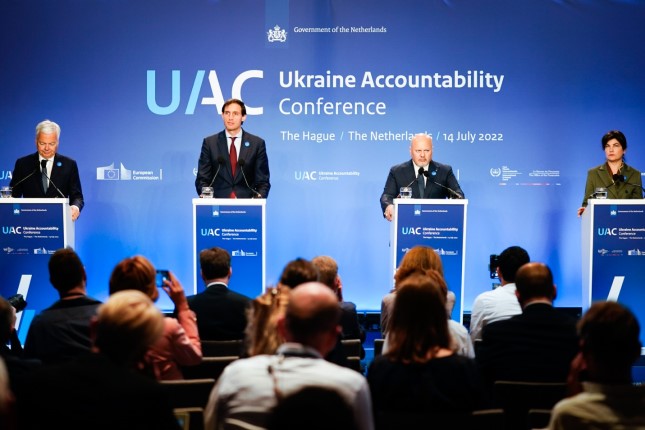
Khan, second from right, with, from left: English European Commissioner for Justice Didier Reynders, Dutch Foreign Minister Woke Hoekstra, and Attorney General of Ukraine Iryna Venediktova at a press conference in The Hague, Netherlands, on July 22, 2022. Photo: Ministerie van Buitenlandse Zaken – Wikimedia Commons / CC BY-SA 2.0.
Craig Mokhiber is a longtime international human rights lawyer who resigned his post as director of the New York Office of the U.N. High Commissioner for Human Rights due to the U.N.’s failure to address what he called the “text-book case of genocide” taking place in Gaza. He characterized the difference between the ICC’s treatment of Palestine and Ukraine as “a stunning inconsistency.”
On Dec. 3, Khan visited Israel and Ramallah in the occupied West Bank. He issued a statement condemning Hamas for its “egregious breach of fundamental principles of humanity through the taking and continued holding of children.” He also decried “the significant increase in incidents of attacks by Israeli settlers against Palestinian civilians in the West Bank.”
But Khan did not criticize the Israeli government for its genocide, war crimes and crimes against humanity in Gaza, including killing thousands of Palestinians, bombing civilian infrastructure, and forcibly transferring (now 85 percent) of the population of Gaza.
Khan made a milquetoast statement that Israel’s response to Hamas’ attacks is “subject to clear legal parameters that govern armed conflict. Conflict in densely populated areas where fighters are alleged to be unlawfully embedded in the civilian population is inherently complex, but international humanitarian law must still apply and the Israeli military knows the law that must be applied.”
On Dec. 6, I joined dozens of scholars and practitioners of law, international relations and politics in signing an open letter to the ICC’s Assembly of States Parties urging them to investigate Khan’s “lack of impartiality and non-discrimination.”
We wrote that Khan’s statement “demonstrated selective application of international criminal law, and an extralegal interpretation of its principles.” Khan, we noted, “seems to have already concluded that international crimes have been committed by Palestinian armed groups, thereby undermining the fundamental rules, including on the presumption of innocence and relevant standards.”
In our letter, we pointed out that Khan used the adjective “innocent” to describe Israeli civilians but did not use the same adjective to refer to Palestinians, and he made no reference to the “risk of genocide in Gaza.”
We called on the Assembly of States Parties to “ensure that the Prosecutor disburses resources on the basis of investigative needs as opposed to politically-motivated prioritization, and urged it to expedite its investigation into the Situation in Palestine.”
UN Chief Invokes "Most Powerful Tool"
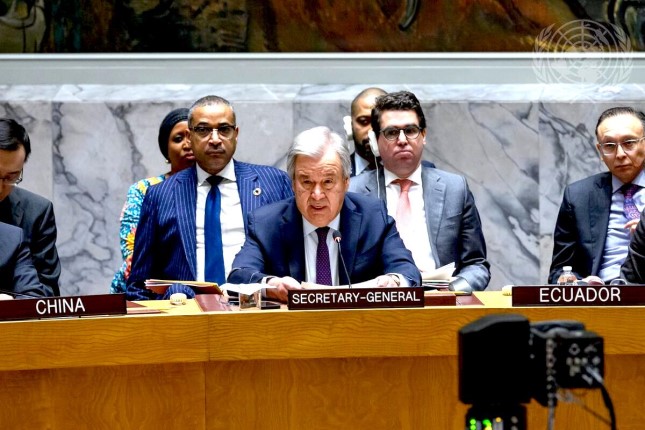
U.N. Secretary-General António Guterres on Dec. 8, at a meeting of the Security Council after he invoked Article 99 of the U.N. Charter. Photo: UN Photo / Loey Felipe.
On Dec. 6, U.N. Secretary General António Guterres sent a letter to the Security Council urging it to declare a humanitarian ceasefire so that “the means of survival can be restored, and humanitarian assistance can be delivered in a safe and timely manner across the Gaza Strip.” He said, “We cannot wait” and condemned the “appalling human suffering, physical destruction and collective trauma across Israel and the occupied Palestinian territories.”
Guterres invoked the rarely used Article 99 of the U.N. Charter which says the secretary general “may bring to the attention of the Security Council any matter which in his opinion, may threaten the maintenance of international peace and security.”
“The situation is fast deteriorating into a catastrophe with potentially irreversible implications for Palestinians as a whole and for peace and security in the region,” Guterres wrote. “Such an outcome must be avoided at all costs.”
On Dec. 8, the Security Council convened in response to Guterres’s entreaty. Guterres informed the council, “There is no effective protection of civilians. The people of Gaza are being told to move like human pinballs – ricocheting between ever-smaller slivers of the south, without any of the basics for survival. But nowhere in Gaza is safe.”
Guterres said, “I urge the Council to spare no effort to push for an immediate humanitarian ceasefire, for the protection of civilians, and for the urgent delivery of life-saving aid.”
The United States vetoed a Security Council resolution that would have demanded an immediate humanitarian ceasefire, the protection of Palestinian and Israeli civilians, and the immediate and unconditional release of all hostages.
Once again, the U.S. has provided Israel with political and diplomatic cover for its war crimes, genocide, and crimes against humanity.
Main photo: International Criminal Court, The Hague in The Netherlands, 2017 © jbdodane / Flickr / CC BY-NC 2.0.
Source: Consortium News.
